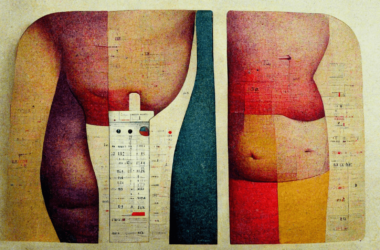As people strive to achieve the ideal body type, improve cognitive function, or enhance athletic performance, they often turn to food choice as their mechanism for change. People put into their bodies what they can expect to get out of it; therefore, it makes sense to eat ‘healthy,’ nutrient-dense foods when trying to stick to a healthier lifestyle. But at a certain point, this desire to only give the body whole foods and restrict things devoid of nutritional value because they are not ‘clean’ can lead to an unhealthy lifestyle. Despite the fact that clean eating is centred around ingesting ‘whole’ and ‘unprocessed’ foods and is marketed as the hallmark of a healthy lifestyle, in practice, it ascribes a moral value to food.
On social media, food bloggers, celebrities, and lifestyle gurus share that drinking celery juice every morning changed their life, or that cutting out gluten and dairy gave them their perfect body and mental clarity. To achieve such results, influencers suggest that their followers adopt the same rituals; however, many influencers are simply not qualified to make these suggestions. Moreover, the sample size to support their claims is often one person.
While gluten and dairy-free diets are extremely important to people who cannot physically process these foods, applying such limitations broadly to everyone’s diet might lead to detrimental physical and mental health effects. In reality, cutting out food groups deemed ‘bad and unhealthy’ can mean missing out on macro and micronutrients, impairing good physical health. What starts out as a simple choice to restrict certain types of food can lead to anorexia, bulimia, or other eating disorders with a host of negative physical implications such as fatigue, dizziness, low energy, missed periods, and anemia.
In addition to physical effects, restricting the foods that one eats can influence mental health. Having an unhealthy relationship with food can become all-consuming and crippling. Following a certain diet because it makes one happy and is in line with the way they want to live their lives is a healthy mentality, but problems arise if this diet causes stress. In severe cases, orthorexia, the obsessive behaviour to eat healthily, can develop. Orthorexia is different from other eating disorders in that people meet their caloric needs but limit the exact foods that they eat.
Beyond providing energy for people to maintain active lives, food is important both culturally and socially. Cutting out processed foods and treats might mean saying no to dinners with friends and feeling anxious about events that involve ‘bad foods.’ Labelling foods such as quinoa, kale, and chia seeds as ‘good’ implies that other foods are bad or impure. This gives way to an all-or-nothing mentality in maintaining a healthy diet and to a feeling of failure when this rigid and restrictive diet regime is not fully achieved.
Many clean-eating proponents do not include any added sugar in their diets and demonize white sugar. Yet, their recipes are full of honey and maple syrup, which are forms of sugar and are used by the body in exactly the same way. The body cannot differentiate between coconut sugar that is 10 times the cost of white sugar. Supporters of clean-eating also promote fads such as being gluten-free or dairy-free, which have no credible backing in scientific literature.
Of course, people should aim to eat a healthy, balanced diet, but moderation is key. In practicing true healthy eating, everything has its place: Kale and cookies can exist in harmony, although less of the latter than the former. Food should be enjoyable and nourishing, not a cause of stress and anxiety.
You are not a failure for indulging now and again. Focusing on adhering to a perfect diet takes time and energy away from doing things that make us happy. At the end of the day, we should eat in a way that nourishes our bodies and fuels our lifestyles.









